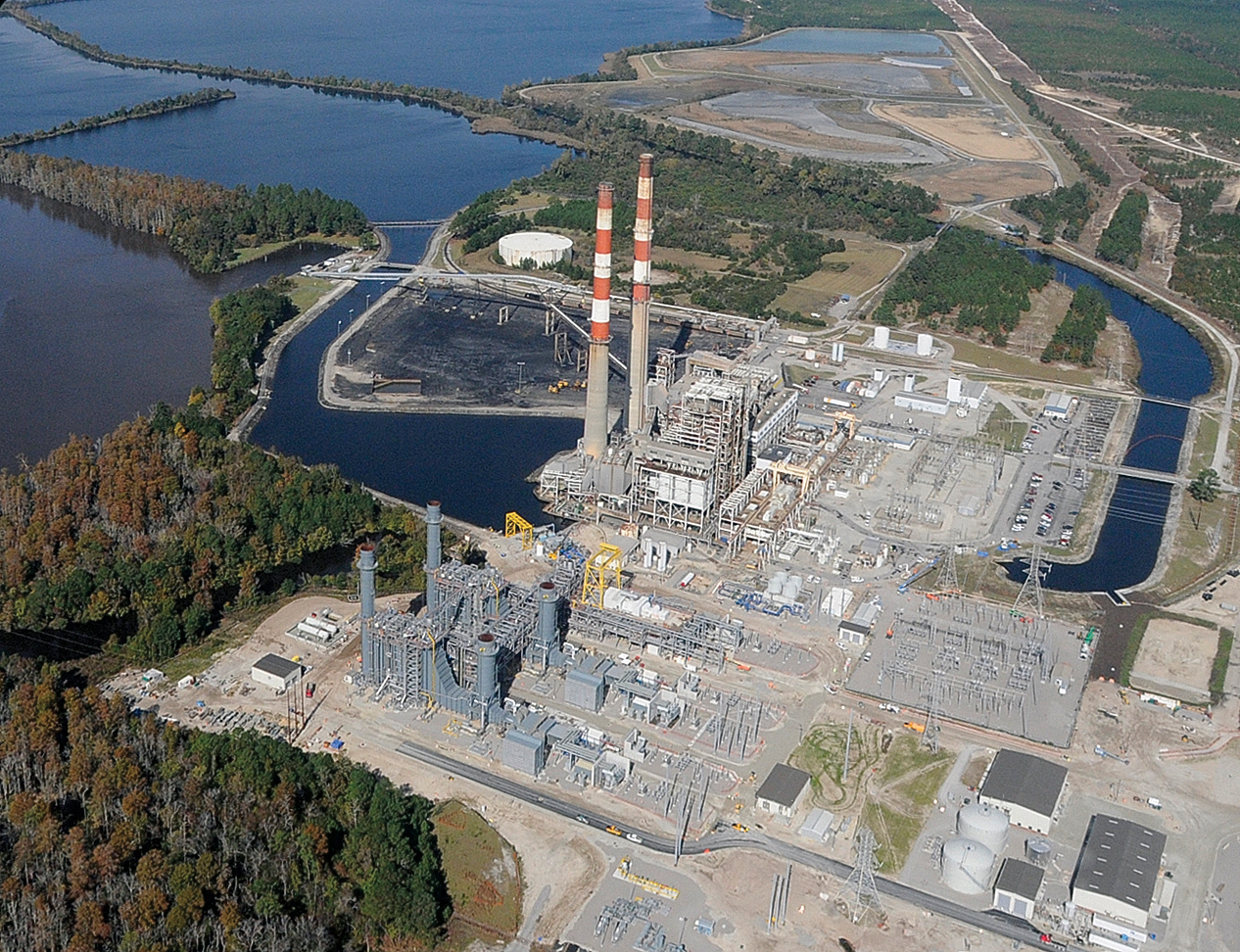A permit allowing Duke Energy to pump wastewater from its leaking coal-ash ponds into the Cape Fear River and Sutton Lake does not go far enough to protect water quality, several speakers said during a public hearing Thursday, Aug. 6.
“Duke Energy has earned nothing less than intense scrutiny,” said Kemp Burdette, Riverkeeper with Cape Fear River Watch. He and other speakers want more frequent testing of the wastewater discharge to ensure compliance with water quality standards, as well as tighter limits on the amount of toxic metals and chemicals allowed.
The hearing was to solicit comments on a preliminary discharge permit at the site of the defunct Sutton Steam Plant off U.S. 421 north of Wilmington. The permit would allow dewatering — the removal of water from solid material — of the two coal-ash ponds that are leaking toxic substances into the groundwater and the Cape Fear River.
The permit calls for daily limits on arsenic, selenium, chromium, cadmium and other pollutants in wastewater discharged into Sutton Lake, but only quarterly testing. Theoretically, several speakers said, Duke Energy could far exceed the pollution limits between the required quarterly tests and no one would know.
Burdette called the quarterly testing requirement “so absurd that it seems to be an oversight.”
Duke already has a discharge permit, known officially as a National Pollutant Discharge Elimination System (NPDES) permit. But the coal-ash cleanup and changes related to the new natural gas plant that replaced the coal-fired Sutton Plant required a modification. All parties that discharge wastewater into surface waters must have an NPDES permit.
Most of the comments at the sparsely attended hearing pertained to testing frequency and the quality of the wastewater that will be dumped into Sutton Lake and the Cape Fear River. The state recently reclassified the lake, a popular fishing spot but long used as a discharge pond for the Sutton Plant, to a water of the state.
The designation affords it certain protections, but speakers said the permit allows more toxic discharge into the lake than into the Cape Fear River.
“The problem is that this is really a meaningless permit,” said Nick Torrey, a staff attorney with the Southern Environmental Law Center, which has been pushing for years to force the cleanup of coal-ash ponds. He called the permit a free pass to continue dumping pollutants into Sutton Lake.
He and other speakers insist daily testing is necessary to ensure compliance and stricter pollution limits should be applied.
David May, regional supervisor of the Water Quality Regional Operations office in Washington, N.C., presided over the hearing and said all comments will be considered before a final permit is issued. For weeks before the hearing, the state also accepted written comments.
It could take 90 days or longer for the Division of Water Resources director and the Environmental Management Commission to decide whether to issue or modify the permit.
The Sutton site holds 7.2 million tons of coal ash. Duke Energy plans to move 2 million tons of ash by rail to an abandoned clay mine in Chatham County. The remaining 5.2 million tons will be dewatered, excavated and reburied in new multiple-lined landfills on the Sutton site.
The state issued permits in June allowing the utility to use old mines in Lee and Chatham counties as depositories for coal ash being removed from Sutton and several other plants in North Carolina.
email [email protected]




